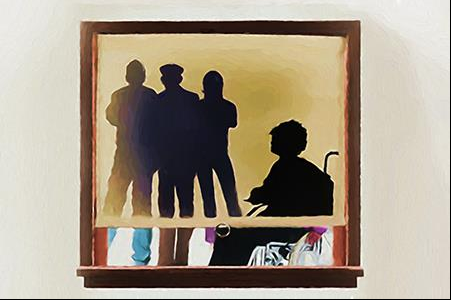The Lilith Blog 1 of 2
November 8, 2016 by Paula Caplan
Jewish and Feminist Themes in This New Off B’Way Play from Paula J. Caplan

Image by Amy Smith
I grew up as a member of about 40 Jewish families in Springfield, Missouri, a Midwestern city of about 80, 000 people. My great-grandfather, Ben Karchmer, was a founder of the congregation there, and I have always been proud of my Jewish heritage. And I have been a feminist since the time, more than 45 years ago when I first learned about feminism. I was trained as a psychologist, and spoke at an early, germinal 1992 conference on Judaism, Feminism and Psychology in Seattle.
When I started writing plays more than twenty years ago, I soon realized that my religion and my feminism would inform that writing. In the first play I ever wrote, “Call Me Crazy,” Sigmund Freud’s mother is a character, and as I wrote her lines, I pictured my grandmother. I thought that, like my grandmother’s older sisters, Amalia Freud might well have had a Yiddish accent, and I assumed she would have been a feminist of her time.
Judaism and feminism certainly characterize my newest play, ”Shades,”, which starts a seven-week run in its NYC premiere Off-Broadway Wednesday, November 9, at the Cherry Lane Theatre Studio.
Religious or not, Jews often practice Tikkun Olam—repairing the world—and in this dual-award winning play, the three members of the Arnold family have different ways of doing that repair, ways that sometimes bring them into conflict with each other and sometimes bring them closer together. They talk about whether it is only Jews or all people who have responsibility for repairing the world. The adult daughter, Val, is a nurse and the lead character in the play. Both her antiwar politics during the Vietnam War and her traditionally “feminine” socialization to be warm and expressive bring her up against her brother, who enlisted to serve in Vietnam and is almost militant about being emotionally reserved. Val is recently widowed, and harbors a secret that is tearing her apart, but her developing friendship with June, a Black woman who is physically paralyzed and emotionally straightforward, witty, and compassionate, brings strength and hope to them in different ways. Val becomes an inspiration for June to resume writing powerful poetry for the first time since she was injured.
Val’s father is a World War II veteran, and the character is based on a real person, a Caucasian man who was Captain of an all-Black artillery battery during the Battle of the Bulge. In the play he talks about his relationships with his men. He is not the sort of person who talks about the ways he was bravely upfront about being Jewish even when in danger of being captured by the Nazis, nor about how he helped in his own way in the fight for civil rights for the Black men in his unit, but his children know these stories.
Here is the press release and Lilith readers are urged to use the HALFSHADES discount code at www.cherrylanetheatre.org.
Talkbacks by a variety of great women and men—at least three of whom are Jewish—will follow six of the early performances and can be seen on the right side of the Facebook page.
 Please wait...
Please wait...